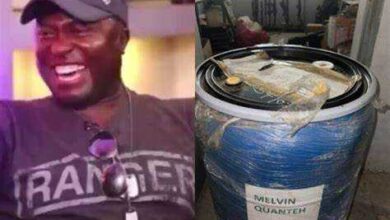How to Avoid Common Tattoo Aftercare Myths

Getting a new tattoo is exciting, but proper aftercare is crucial to ensure your ink heals beautifully and stays vibrant for years to come. With so much conflicting information out there, it’s easy to fall for common tattoo aftercare myths that can actually harm your new body art. In this article, we’ll debunk some of these myths and provide you with expert tips to help your tattoo heal properly.
Myth #1: Keep Your Tattoo Covered for Weeks
One of the most pervasive tattoo aftercare myths is that you should keep your new ink covered for weeks on end. While it’s important to protect your tattoo from the sun and other environmental factors, keeping it covered for too long can actually hinder the healing process.
After the initial bandaging period (usually 2-4 hours), it’s best to let your tattoo breathe. Gently wash it with fragrance-free soap and lukewarm water, then pat it dry with a clean towel. Apply a thin layer of unscented moisturizer to keep the skin hydrated, but avoid heavy creams or ointments that can clog pores and trap bacteria.
Myth #2: Sunbathing Helps Tattoos Heal Faster
Another common myth is that exposing your new tattoo to sunlight will help it heal faster. In reality, the opposite is true. UV rays can fade and damage your tattoo, leading to premature aging and even skin cancer.
To protect your ink, always apply a broad-spectrum sunscreen with an SPF of at least 30 before going outdoors. Cover your tattoo with loose, breathable clothing whenever possible, and avoid direct sunlight during peak hours (usually 10 am to 4 pm).
Myth #3: Picking Scabs Speeds Up Healing
As your tattoo heals, it’s normal for scabs to form over the inked areas. While it may be tempting to pick or scratch at these scabs, doing so can seriously damage your tattoo and lead to infection.
Instead of picking, gently wash your tattoo twice a day with fragrance-free soap and lukewarm water. Pat it dry with a clean towel, then apply a thin layer of unscented moisturizer to keep the skin hydrated. If the scabs are particularly itchy or uncomfortable, try applying a cold compress or taking an over-the-counter antihistamine to relieve symptoms.
Myth #4: You Can’t Remove an Unwanted Tattoo
In the past, tattoos were considered permanent, but advances in laser technology have made it possible to safely and effectively remove unwanted ink. If you’re considering tattoo removal, it’s important to choose a reputable provider with experience in the latest techniques.
Look for a clinic that offers professional laser tattoo removal in Denver using state-of-the-art equipment and protocols. A skilled technician will work with you to develop a personalized treatment plan based on your skin type, tattoo size, and ink colors. While complete removal may take several sessions, most people see significant fading after just a few treatments.
Myth #5: Tattoo Aftercare Products Are One-Size-Fits-All
When it comes to tattoo aftercare products, there’s no one-size-fits-all solution. What works for one person may not work for another, and using the wrong products can actually harm your new ink.
To choose the best aftercare products for your tattoo, look for fragrance-free, hypoallergenic formulas that are specifically designed for tattooed skin. Avoid products containing alcohol, petroleum, or other harsh ingredients that can dry out or irritate your skin. If you’re unsure which products to use, ask your tattoo artist for recommendations or consult with a dermatologist.
The Bottom Line
Proper tattoo aftercare is essential to ensure your new ink heals beautifully and stays vibrant for years to come. By debunking common myths and following expert tips, you can help your tattoo heal properly and avoid complications like infection, fading, or scarring.
Remember to keep your tattoo clean and moisturized, protect it from the sun, and avoid picking or scratching at scabs. If you’re considering tattoo removal, choose a reputable provider that offers professional laser tattoo removal in Denver using the latest techniques and equipment. With the right aftercare and treatment, you can enjoy your tattoo for years to come or safely remove it if your preferences change.




